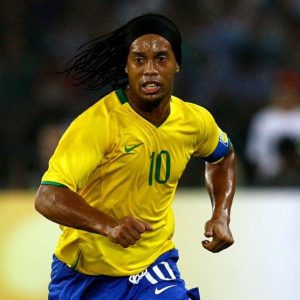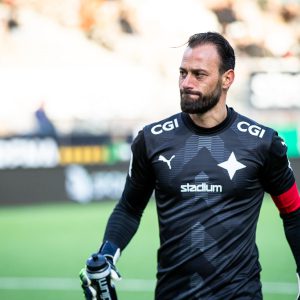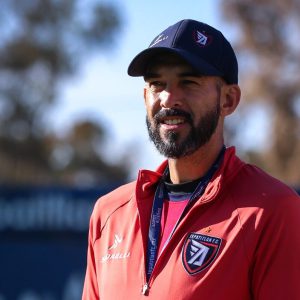

Wilson Eduardo: “Angola winning an international trophy?”
Recently, Wilson Eduardo finished his adventure in the United Arab Emirates, where he had the opportunity to represent Al Ain during the 2020-2021 season. The experienced Sporting CP, Dinamo Zagreb, SC Braga, and ADO Den Haag former player analyzes his professional path, reveals how the possibility of playing for the Angolan national team occurred, and reflects on his post-career plans in this conversation led by Nuno Milheiro.
The 31-year-old winger started his career as a striker and played for FC Pedras Rubras and FC Porto before moving to Sporting CP, where he completed his formative process. The transition period for the Lisbon club’s first team was not prompt, having been successively loaned to smaller Portuguese clubs such as Real SC, Portimonense, Beira-Mar, Olhanense, and Académica and experiencing dissimilar competitive contexts.
Now, looking back at the past, it was the best decision. In Sporting, you have everything! You can have whatever you want in the same minute. In small clubs, you cannot. You need to adjust and improve to succeed. It was important for me to grow as a player”, he admits.
Despite having played quite regularly in his debut season for Sporting CP, he ended up being fruitlessly loaned to Dinamo Zagreb – his first experience outside Portugal – and ADO Den Hagg. “I moved to Zagreb, in Croatia, and there were four or five Portuguese players, so the adaptation was easier. The season was not good because we could not get qualified for the Champions League. After that, we went to the Europa League, but we also did not go to the next round [after the group stage]. Then they talked to me and said they wanted to put the young players from the academy [on the team]. I talked with my agent and Sporting CP and decided to move to the Netherlands. It is great for the strikers and wingers because the football there is very open. The experience was not also good. I have faced many difficulties, but now I am more mature”.
Wilson Eduardo decided to represent Angola’s national team, with whom he kept conversations since he was playing for Portugal’s under-21s. “They kept doing it until I accepted to play for them. I cannot lie: I wanted to play for Portugal. My father always talked with me to join Angola because it is also my country. All my family is from there. Only me and my brothers were born in Portugal. I am proud of the decision I have made and hope to continue until I finish my career”.
When questioned about the possibility of Angola winning an international trophy in the next few years, it seemed moderately hopeful, despite the strong competition from other national teams.
“We have Senegal, with many players playing in European big teams, Algeria, Morocco, Nigeria, Cameroon, Tunisia… It is more difficult now for us to win, but when we go to the tournaments, we go to win, not to lose or draw. In the future, who knows? We saw Greece winning the UEFA EURO 2004, so why not? I have talked about Greece, but I could have talked about Leicester, a few years ago, that won the Premier League. Nobody thought they could do it, but they did. It is football and it can always be magical”.
Academies in Angola are underdeveloped, especially when compared to countries such as Cape Verde or Guinea-Bissau.
They have academies and a lot of players coming to Portugal to play in big teams: SL Benfica, FC Porto, Sporting CP, and SC Braga. We also see many of them playing for the [Portugal] national team. I think they have the structure but do not have the money Angola has.”
“Angola concentrates everything in the Girabola [the top division of Angolan football]. Football in Europe is different, much more aggressive, in terms of rhythm, on how you have to behave to become a professional… [Angolan players] They have quality, but sometimes miss something they could prepare in the academies”, he recognizes.
From a cultural point of view, his latest adventure at Al Ain was undoubtedly the most peculiar, but the adaptation process was fairly simple. “We trained at night! I have always trained in the morning. The most difficult part for me was the weather there. It is too much hot in July, August, and September. You want to breathe, but you cannot. The adaptation was not so difficult. They have a particular culture. We stay at home all day, and when we go to training the body is relaxed and prepared to go to sleep. But the rest is okay”.
The interaction with different realities significantly enriched his career as a player and could be a major asset in the future when performing other functions within the world of football. “I think it is always important for us to learn about other countries and continents. In the future, if you want to be a coach, a scout, a manager, or something like that, you already understand how the clubs work in different continents”.
Wilson Eduardo is not entirely sure of his post-career steps, but he will certainly keep linked to football. “Now I have the first level [UEFA C coaching license]. I want to take the second level, but I do not know if I want to be a coach, a manager, or an agent”, he concluded.
Categories
Latest Courses
-
9 Lessons
-
1 Lesson
-
6 Lessons
You May Also Like
- Blog
- August 1, 2022
- Blog
- June 3, 2022
- Blog
- May 27, 2022
Developed by Brandit Digital Media Services.





